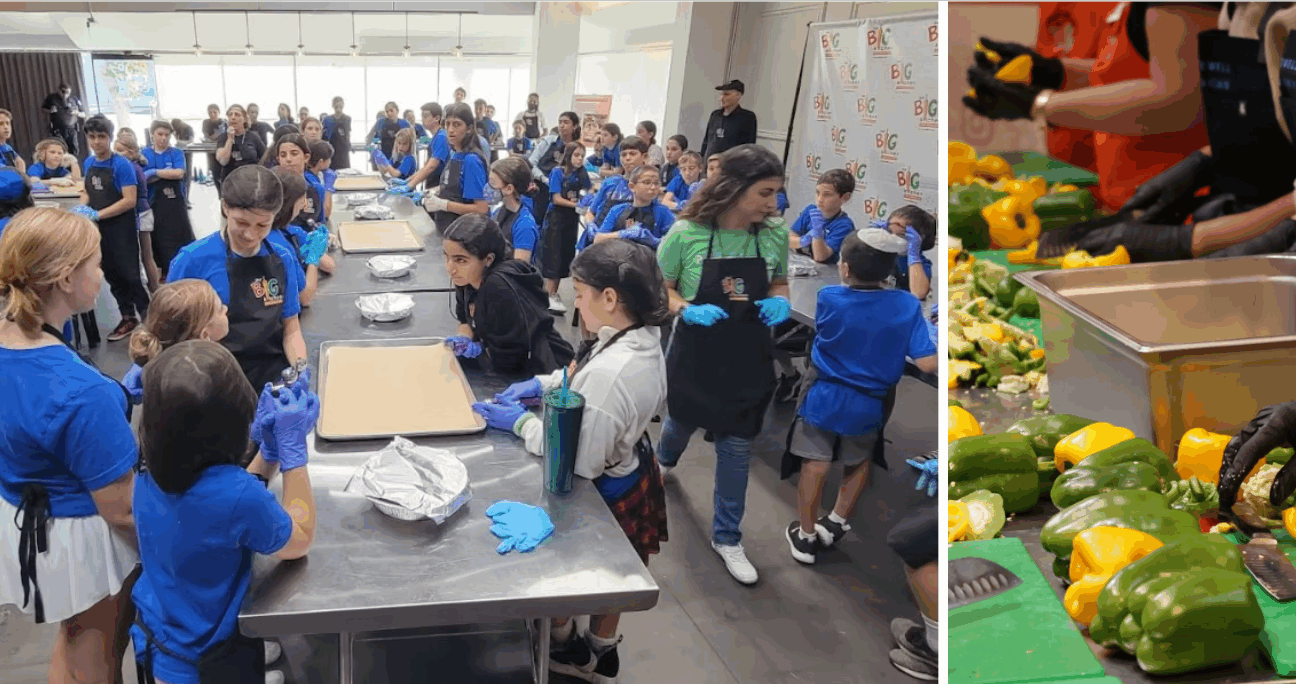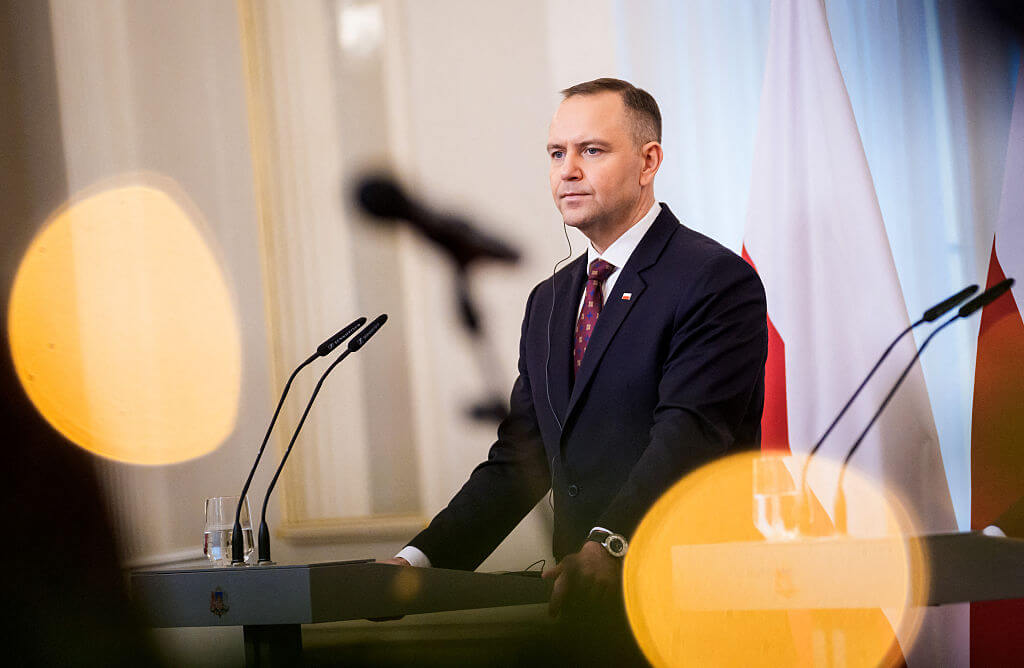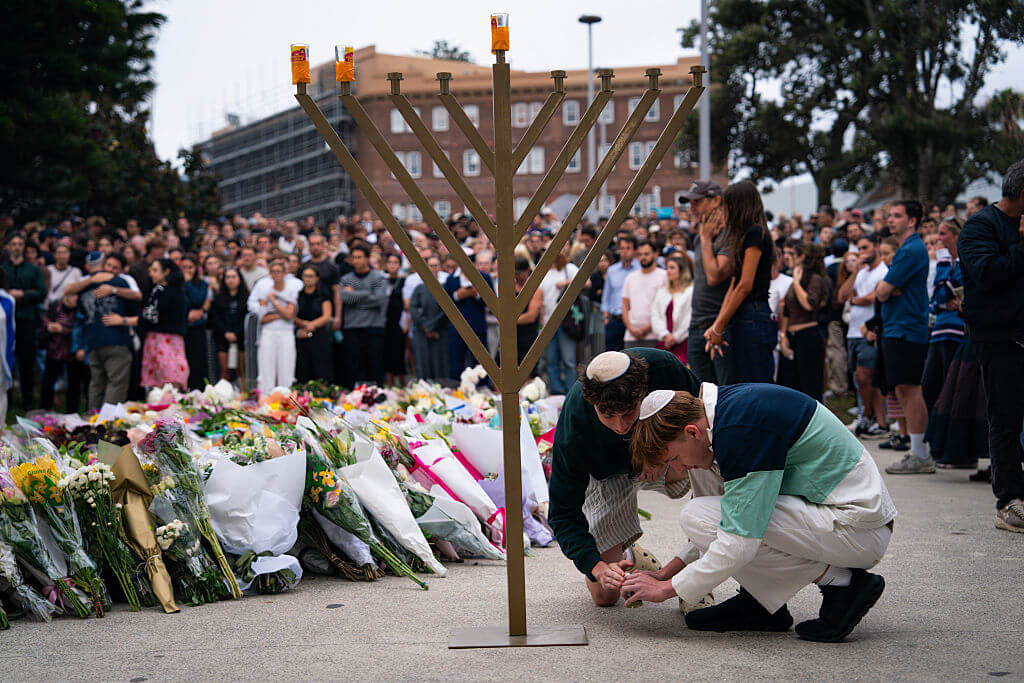Don’t Whitewash Charleston’s Jewish History of Racism

Image by Getty Images
A prominent Jewish Charlestonian’s inspiring response to the racist massacre at the Emanuel AME church has circulated widely over the last days. Robert Rosen writes that “Charlestonians do not believe in hate, lawlessness, racism or violence.” The city “has from its birth in 1670 had the greatest respect for all religions and all places of worship. These killings have outraged each and every one of us.”
His essay points to the best traditions of life in the city: tolerance, an attentiveness to history, and a powerful sense of place and community.
The piece whitewashes the history of the city and its Jews. Rosen’s account lacks critical context when it comes to Jews, and is rose-tinted when it comes to race. The city has changed dramatically over the last decades, but, like Rosen, it often remains willfully ignorant of the long reach of the past into the present.
Yes, Charlestonians are outraged by this terrible event. But by pointing only to the best traditions of the city, and claiming that these alone represent its values, Rosen deludes himself about the present and about the past.
The city has a troublesome history that did not end abruptly with the Civil War or the Civil Rights movement. Charlestonians have not “lived together in peace for 150 years since the Civil War.” Has Rosen forgotten the terrorism that sunk Reconstruction? The indignities and injustice of Jim Crow? The inequalities of the present? Or even the murder of Walter Scott by a policeman in April of this year?
That Charleston was “no Birmingham or Selma” should not be a subject of pride. The city might have done better in the long run through confrontation than through the insidious alternatives to segregation that were introduced to circumvent the intent of the Civil Rights movement. These measures, whose legacy speaks today most clearly through the sheer number of private schools in the city and the weaknesses of the public system, have ensured that inequality and separation outlasted the Civil Rights era.
The city’s record when it comes to addressing its past is spotty. Marion Square, which sits alongside the Emanuel AME church and serves as the crossroads of the city, is anchored by a looming statue of John C. Calhoun, the intellectual and political heavyweight responsible for giving new ideological life to the slavery system before the Civil War. The church and the square are flanked by Calhoun Street which bisects the city. Public memory of the evils of slavery is well hidden, while statues glorifying the Confederacy, and the opulent mansions of the antebellum era, are celebrated. In the early-2000s, the private owners of Marion Square beat back a proposal to erect a monument to Denmark Vesey, who was accused of plotting a slave uprising in 1822 and was one of 35 men hung. His church, Emanuel AME, was burned down in retribution for the plot.
Today Marion Square is also home to a large public memorial to the Holocaust that sits close to the massive statue of Calhoun. When the sun is high in the late afternoon, the statue of Calhoun casts its shadow toward this memorial. This grand irony bespeaks the strange history of Jews and race in the city. For the history of Jewish life in Charleston is intertwined with the exclusion of others.
Jews were welcome at the founding of the colony, but Catholics were not. Before the Civil War Jews were accepted into white society in large measure because the enslaved population outnumbered a paranoid white populace that wanted strength in numbers. Jews in Charleston today remember their unusual degree integration from early in the city’s history, but not the other half of this equation. They were also on the right side of the color line during Jim Crow; their present-day economic and social success in Charleston is inextricably linked with this past.
If Rosen’s essay is representative, they also have misremembered their mixed record when it came to Civil Rights. Burton Padoll, who served as rabbi in the 1960s of Kahal Kadosh Beth Elohim, the oldest Reform congregation in the country, resigned under pressure from prominent members of his congregation in large part because of his activism.
Only by recognizing our troublesome past, and our place in it, can we think clearly about real change in the present. We in Charleston should all aspire to create the kind of society Rosen imagines for us, but if we shear our city and community from its real past, we’re never going to get there.
Adam Mendelsohn is director of the Kaplan Centre for Jewish Studies and Research at the University of Cape Town and former director of the Pearlstine/Lipov Center for Southern Jewish Culture at the College of Charleston. He author of The Rag Race (NYU Press), winner of the National Jewish Book award.
__















